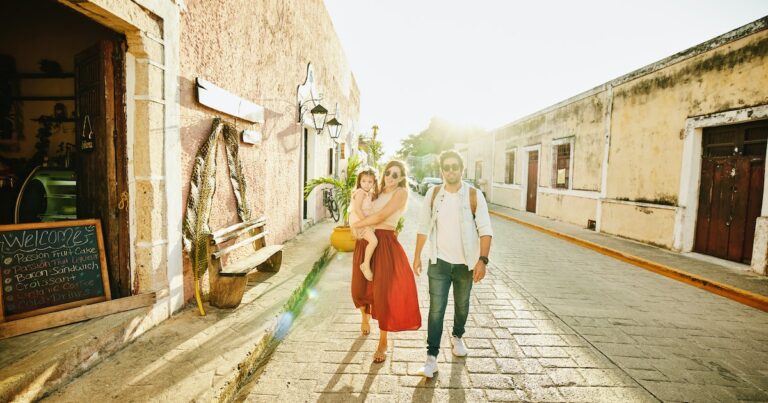
[ad_1]
You’ve got your family’s passports in hand, the airplane tickets are booked, and you’re counting down the days until you’ll be soaking up the sun on a beautiful beach. And if your travel destination happens to be Mexico, you might already be conjuring memories of SATC‘s Charlotte York’s Poughkeepsie moment during Carrie’s “honeymoon.”
While the jury is still out on whether it was the pudding or the shower slip-up that did Charlotte in with a bad case of diarrhea, experts still recommend that you don’t drink tap water while traveling in Mexico.
Why can’t you drink tap water in Mexico?
Among the many intestinal problems that can arise from drinking contaminated water, “traveler’s diarrhea” is the most common and is often referred to in Mexico as Montezuma’s Revenge.
“While the quality of tap water varies throughout Mexico, it’s generally unsafe for consumption, especially if you’re not a resident. Because Mexico’s water infrastructure is in partial disrepair, contaminants are often found in the tap water when tested in a lab. Bacteria and parasites in the water can cause intestinal problems, and some chemicals, such as those found in pesticides, can also be harmful,” says Sarah Evans, founder of Well Aware, an international nonprofit building sustainable clean water systems in East Africa to drive development and empower communities.
Before you start panic-packing Pepto-Bismol in Costco quantities, know that many resorts offer complimentary bottled drinking water for their guests. In fact, when Scary Mommy reached out to the team at the Vidanta Riviera Maya resort, they assured us that they go to great lengths to maintain high standards of cleanliness, food safety, and water quality. This includes exhaustive laboratory analysis of their water resources for microbes and chemicals. Even so, they noted that “While tap water quality in Mexico has significantly improved in recent years, it is recommended to avoid drinking it,” adding that their resorts have implemented a water treatment process that ensures tap water is safe for bathing, brushing teeth, and other similar purposes.
And if you’re wondering about consuming food prepared with tap water, the experts weighed in on this, too, sharing that the tap water is indeed safe for cooking. So, you won’t need to maintain a packaged pudding diet like Charlotte while on vacation in Mexico. However, it’s best to skip the ice unless your resort can verify that it was made with purified drinking water.
What are some alternatives to relying on plastic drinking bottles?
What’s the bad news? Plastic. The negative environmental impact that comes with single-use plastics is a huge problem. It ends up literally everywhere; in our water systems, the air we breathe, and ever-growing landfills.
When needed, relying on drinking water in plastic bottles is better than chancing getting sick and ruining your trip; just make sure the cap is fully sealed before sipping. But if you’re looking for eco-friendly alternatives, there are ways that can help you avoid reaching for plastic drinking water bottles while traveling in Mexico.
Filtered water stations: Many resorts are doing their part to avoid the negative impacts of single-use plastics by installing filtered water refill stations and offering their guests reusable water containers.
Water purification bottles: Pack a few water purification bottles before heading out on vacation. The built-in microfilters are designed to remove chemicals, bacteria, and other potentially harmful contaminants from water. Some can also improve water taste by reducing chlorine, odors, and organic substances.
Water purification tablets: Similar to filtered water bottles, purification tablets work to disinfect and neutralize tap water, making it suitable for human consumption. These small tablets are also handy for taking on the go or stashing in your car or survival kit for emergency situations.
Still, for people with autoimmune or other medical conditions, checking with your doctor before international travel is the best plan.
Water safety resources:
[ad_2]